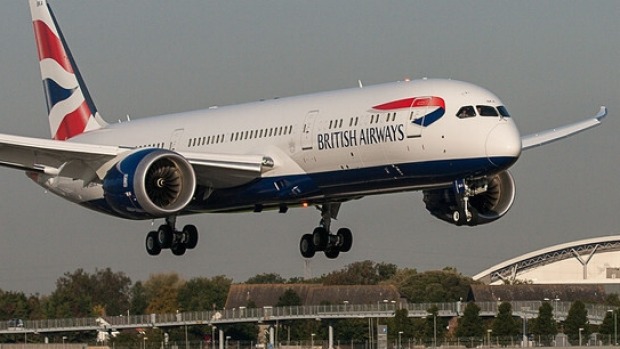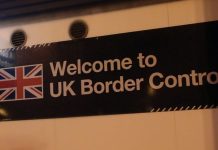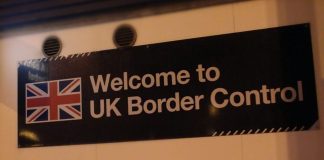LONDON, UK:â¨British Airways Boeing 787-9 arrives at London Heathrow on 30 September 2015 tra19theissue-BA
British Airways back on the kangaroo route Photo: Nick Morrish/British Airways
With British Airways’ policy of not mandating vaccinations for its staff, how will BA manage its resumption of flights to Australia at the end of March? L. Lawrence, Drummoyne, NSW.
British Airways will soon recommence its Australia service with flights into Sydney, and therefore the regulations determined by the state of NSW apply to its incoming flight crew. According to those regulations, unvaccinated flight crew arriving from overseas must self-isolate for 14 days or until they depart Australia by aircraft. Vaccinated crew must self-isolate until they return a negative RAT, to be taken within 24 hours of arrival. Unvaccinated flight crew also face more stringent regulations than vaccinated crew regarding transport to their place of isolation.
As you mention, British Airways is one of the few international carriers that requests but does not require crew to disclose their vaccination status. Passengers are required to wear face masks on BA flights. A “what to expect on board” video on the BA website shows cabin crew wearing surgical masks, but not the more effective P2/N95 masks.
I’m travelling through the UK in September and am trying to work out the best way to roam about in Cornwall, through Newcastle and into Scotland. Are B&Bs the go? I’ll have a hire car. If I get ill with COVID will I be covered by National Health? P. Lovel, East Burwood, VIC
B&Bs are a wonderful way to travel in the UK. They’re quirky, they’re an extension of the owner’s personality and tastes, you get to meet the locals on their own turf and they’re pretty decent value. They also vary a lot so you need to check independent reviews. I’ve travelled in the UK using Sawdays (sawdays.co.uk) to plan my overnight stops. It’s a discerning collection of B&Bs, self-contained accommodation and small hotels. The website has a handy map that pinpoints their location and you can check reviews on the same place.
Another good resource is the Good Hotel Guide (goodhotelguide.com), which has a section devoted to the editor’s choice B&Bs.
The UK has a reciprocal health care agreement with Australia which means you’ll be treated under the National Health Service’s public health care system. That’s a great backup, but you really should not be travelling overseas without travel insurance.
I’m trying to understand which COVID-19 rules apply to me during an extended trip to Spain, France and the Netherlands. When I enter those countries, do I need to follow the rules for travellers from Australia, or the less strict rules for EU travellers? Also a tip re getting a Swiss COVID pass to use around Europe, this depends on the canton. A hotel address in Geneva was not accepted, but we got passes using the address of a hotel in Zurich. J. Shrubb, Turramurra, NSW
Make sure you comply with the more stringent rules that apply to travellers coming from Australia. The distinction is generally made to separate travellers who live within the EU from those who do not. Those from the EU will usually have the EU digital certificate, and easier access, but that certificate is not available to anyone vaccinated in Australia.
That’s a great tip re the Swiss COVID pass. The Swiss COVID certificate is one way to get a pass that will allow you to travel freely throughout Europe if you have been fully vaccinated in Australia. The Swiss COVID certificate is valid for 270 days from when the last vaccine dose was administered. The easiest way to find the details is to Google “Switzerland where and how to get a COVID certificate”. Another alternative is the French Pass Vaccinal, which has replaced the Passe Sanitaire, obtained by visiting an approved pharmacy (sante.fr/how-to-obtain-a-french-health-pass) with your passport and Australian International COVID-19 Vaccination Certificate and paying a fee of 36 Euros. The Pass Vaccinal is recognised across the EU.
Get the latest news and updates emailed straight to your inbox.
I’m hoping to visit Ecuador and the Galapagos, Peru, Bolivia, Chile’s Patagonia and Argentina later this year. Any advice about what money to take and the use of credit cards in South America? Also, do you have you any information on the Wanderbus in Ecuador? N. Dombkins, Salamander Bay NSW
All those countries are open for travellers, however the testing regime is fairly tight in some countries such as Chile and you might want to put that country at the top of your itinerary. Timing is going to play a big part in your decision, especially in Patagonia. The best months to visit are reckoned to be between October and February however from December to February you can expect strong winds and bigger crowds, which makes March-mid-April a fine time to visit. Prime time in the Galapagos is December to May, although the Christmas and Easter periods are among the busiest.
The US dollar is the most widely accepted foreign currency but I’ve travelled in Argentina, Chile and Ecuador using my ANZ Rewards Travel Adventures and Citibank debit cards to pay bills as well as making withdrawals from ATMs in local currency. Mastercard, Visa and American Express are widely accepted.
Wanderbus Ecuador (wanderbusecuador.com) looks good. You get to see a lot of the country and reviews are great, but one drawback is you need to make your own accommodation bookings, although the onboard guides can advise.
Since that’s a big wish-list you’d be better off taking an all-inclusive tour. Also, planning is going to be crucial and you’d be far better off leaving it to an expert travel agent who specialises in South America. The South America Travel Centre (southamericatravelcentre.com.au), World Expeditions (worldexpeditions.com) and Intrepid Travel (intrepidtravel.com) are just some of the operators with extensive South America trips.
Got a travel question? Include your name and suburb or town and send it to tripologist@traveller.com.au
michael.gebicki@traveller.com.au
Unlock the world’s wonders with unforgettable journeys tailored just for you! Whether you crave sun-kissed beaches, thrilling adventures, or rich cultural escapes, your dream destination awaits. Enjoy seamless travel with expert tips, exclusive deals, and handpicked experiences that Turn Every Trip into a lifetime memory.










